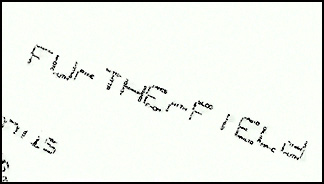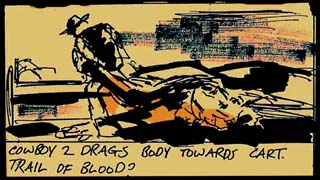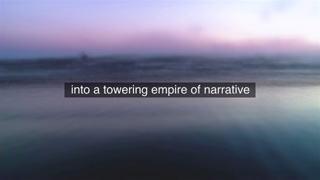
Boundary Cyclone Transaction (2013, 233 MB, 6:46 min)
There’s an odd mixture, in varying quantities, of bone dry wit and
a strain of almost ecstatic lyricism in the work of Steven Ball.
This is combined with an interest in formal governing devices
(how much they actually govern and how much it is part of the
expressive character of the works that they should appear
to so do I don’t know)
Steven, I’m delighted to say, made this piece especially to
be unveiled here on DVblog and it was something worth waiting for.
I append some of his notes to the piece.
****************************************************************
“Lists remind us that no matter how fluidly a system may operate,
its members nevertheless remain utterly isolated, mutual aliens.
Ontographical cataloging hones a virtue: the abandonment of
anthropocentric narrative coherence in favor of worldly detail.”
“…ontography is a practice of increasing the number and density
[of things], one that sometimes opposes the minimalism of contemporary
art. Instead of removing elements to achieve the elegance of simplicity,
ontography adds (or simply leaves) elements to accomplish the realism
of multitude. It is a practice of exploding the innards of things.”
– Ian Bogost, Alien Phenomonology
Imagine this as a premiss:
the world as it appears is only as it appears to you
and perhaps
the world
actually
appears in arbitrary order
Boundary Cyclone Transaction takes Ian Bogost’s characterisation
of the ontographic list and uses it as a process by which to
auto-construct a picture of a non-human, which is perhaps to
say alien, world, or at least one such as can be constructured
using material found on or through the internet. As such it
also presents a fragment of what might be considered as th
e consciousness of the internet as manifested in image, sound and text.
The video consists of collections of image sequences, written words,
spoken words and sounds. The order in which each of those elements
presents themselves to the viewer has been determined randomly,
therefore any juxtaposition of the elements is entirely arbitrary.
The words used are nouns, i.e. they are things, objects, they
were selected using a random word generator. The sounds consist
mostly of recording of environmental phenomena, such as weather
or recordings of cosmic energies, generally speaking non-human
sounds. The image sequences are all found online and consist of
landscapes, insects, animals, images of microscopic organisms
and viruses, astronomical image, in other words also largely
non-human. Both sounds and images were found through using
keyword searches. It was important in the making of the work
for the elements to be as removed from what I might customarily
intentionally select, for them to be as far away from the
familiarity of the (my) everyday, as possible.
Alienation is a state arising from objects in the world, as they
present themselves inevitably arbitrarily and without a coherent
narrative. In this video the use of random processes aims to
make coherence impossible, or as difficult as possible, while
still, due to the linear and temporal nature of its reception,
will still self-organise into a kind of self-coherent ecosystem.
The longer term aim is for this video to be realised in performance,
to perform itself, using software to randomly order the playback
sequence of the discrete elements and media objects (images,
words, sounds) for every iteration.





